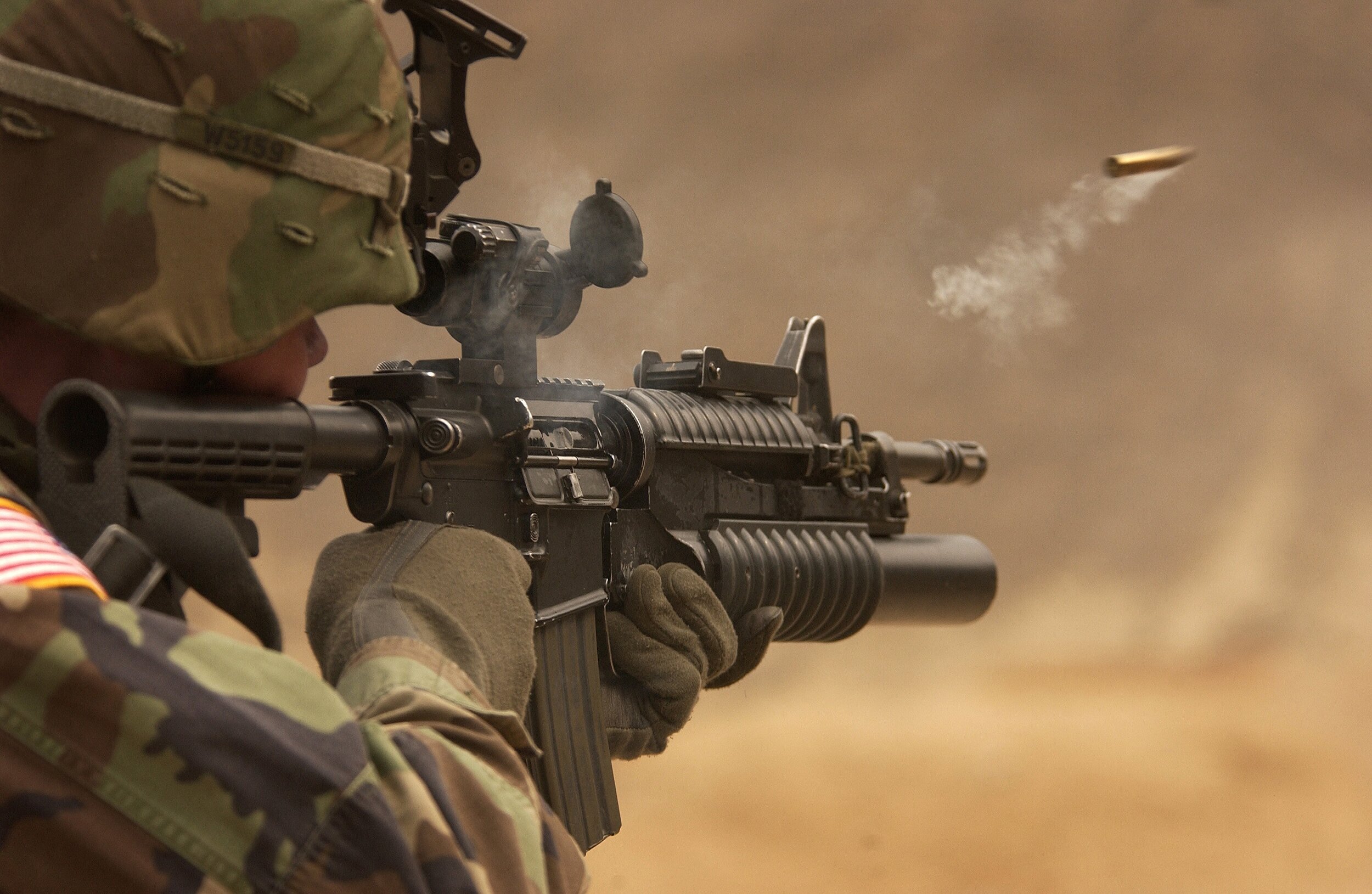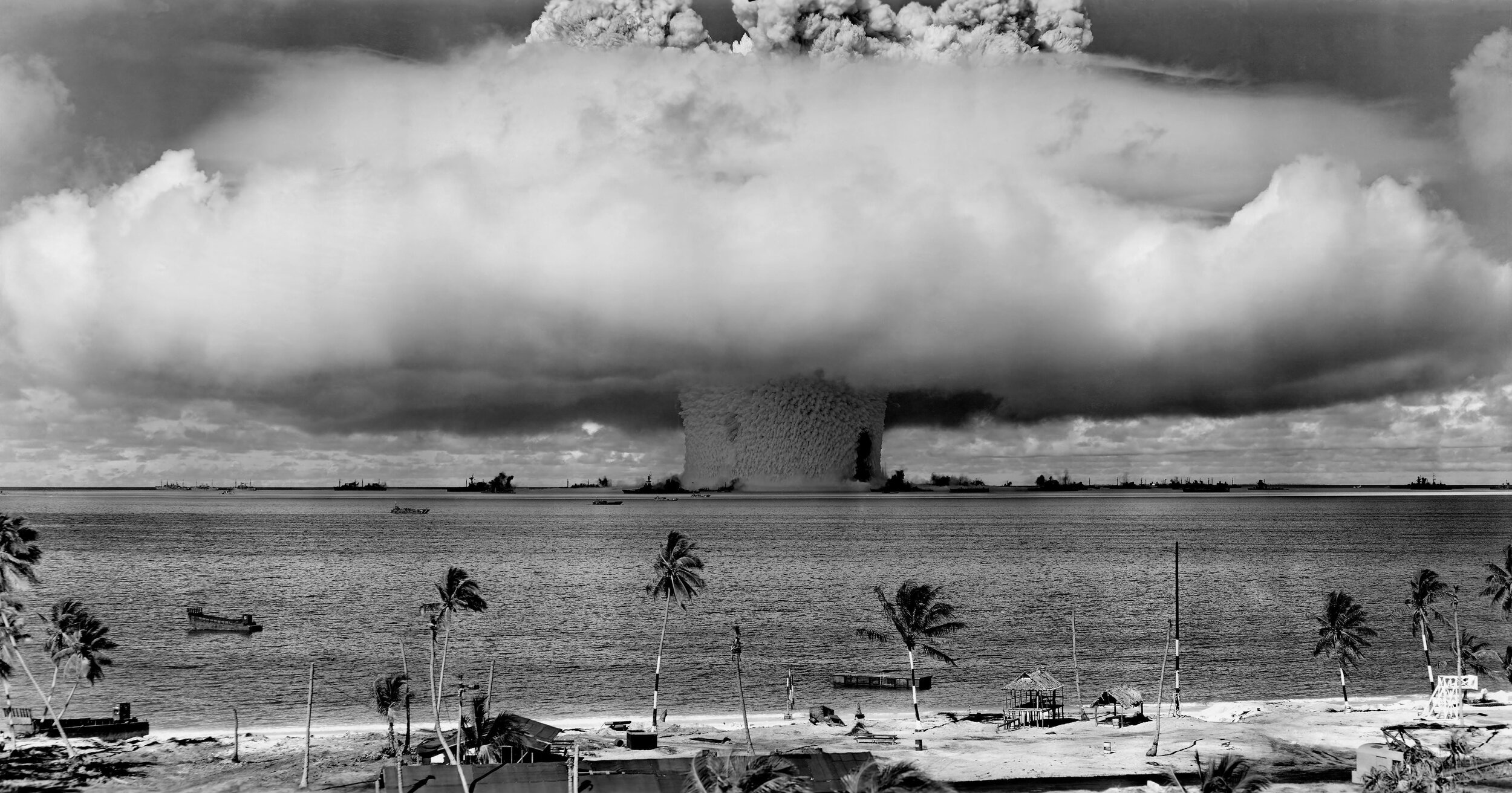When should we go to war?
Can Christians ever go to war?
War is a terrible thing. Those who are most in favour of war are generally those who are safe in the knowledge that they will never be called upon to fight. War brings suffering beyond description – to combatants and non-combatants: lives destroyed, bodies and minds devastated. I regularly represent the Reformed Presbyterian Church at the annual commemoration of the Battle of the Somme at the City Hall in Belfast. Perhaps the most striking thing about the soldiers on parade is how young most of them are – men who have often served tours of duty in Iraq and Afghanistan. Who knows what invisible scars they bear? What a weighty responsibility to send them off to war
The obvious answer to our question, ‘When should we go to war?’ is ‘Never, if at all possible’. Throughout the history of the church there have been Christians who in fact answered ‘Never’, without any qualifications. Groups like the Mennonites, known as ‘historic peace churches’, have rejected any combat involvement in war, although many have served in medical and other caring roles. Could the pacifists be right? Can Christians ever go to war?
The role of sin in conflicts is clear in James 4:1-2; ‘What causes quarrels and what causes fights among you? Is it not this, that your passions are at war within you? You desire and do not have, so you murder. You covet and cannot obtain, so you fight and quarrel.’ If that is the case among the Christians whom James addressed, how much more does it hold true in the world?
However, there is more to be said. The language of warfare is used in a Christian context in Scripture with reference to spiritual warfare against ‘the rulers … the authorities … the cosmic powers over this present darkness … the spiritual forces of evil in the heavenly places’ (Ephesians 6:12). Those powers of evil, however, often operate through human agents who seek to destroy human welfare and life itself. Could – or should – such manifestations of evil in material form be met, at least sometimes, with material opposition?
It is surely significant that, when serving soldiers asked John the Baptist, ‘And we, what shall we do?’, John urged honesty and contentment, not leaving the army. If, as Paul says in Romans 13:4, a ruler ‘does not bear the sword in vain’, there must be a proper place for the restraint of evil by the use of force, both within and among nations. A completely pacifist position does not square with what the Bible says and there are times when a country must go to war.
How are we to discern those times? Even knowing what is really happening in a particular situation where war may be a possibility can be extremely difficult, even in these times of electronic news sources, or perhaps especially in such times, given how easy it is for all kinds of propaganda to be circulated. There is such a thing as ‘false news’, however much the term has recently been abused.
In the course of church history significant Christian theologians, going right back to Augustine in the 4th/5th century, have formulated various criteria for deciding what is a ‘just war’, one in which Christians may participate. The main ‘Just War’ criteria are:
(1) Just Cause: any aggressive action is condemned. Only defensive wars may be justified. Wars for territorial expansion or empire building are ruled out.
(2) Just intention: the goal of a conflict must be a just peace for all concerned. That rules out wars for conquest, revenge, economic advantage or ideological dominance.
(3) Last resort: all other efforts at negotiation or seeking a just compromise must have been tried in vain before war is permitted.
(4) Formal declaration: the use of military force is the prerogative of governments, not of private individuals, and so war must be declared by the highest authority in a nation.
(5) Limited objectives: the goal is to be the restoration of peace, not the complete destruction of a nation’s economic or political institutions nor the annihilation of its population.
(6) Proportionate means: the weaponry and force used should be limited to what is needed to repel aggression and restore peace. ‘Total war’ is not an option.
(7) Non-combatant immunity: only those engaged in actively promoting conflict are legitimate targets. All others, especially civilians, should be immune from attack.
If implemented consistently, these criteria would in fact eliminate war since there would be no aggressors and peace would prevail universally. We know, of course, that in a fallen world that will not happen. Wars will happen and criteria are needed for ‘Just Wars’.
At first sight, these seven criteria look neat and comprehensive. In the realities of life, however, especially in the contemporary world, they raise many questions. How sure can we be, for example, that in any conflict just cause and just intention apply? How clear are leaders’ motives in engaging in war – even to themselves? How much deception of citizens, deliberate or otherwise, may be involved? How satisfactorily can offence and defence be distinguished? Could a clear line be drawn in the midst of a war?
The issue of a formal declaration of war is no easy matter either. Who in fact has the authority to make such a declaration? Recent conflicts, in Iraq for example, have involved coalitions of nations, sometimes on the basis of a United Nations ‘resolution’, sometimes without one. Is international consent necessary for a ‘Just War’ or may it be an unnecessary complication?
We also have to add to the mix the fact that many wars are not waged between clearly-defined nations. ISIS is not a nation, yet the conflict in Syria is clearly a war. Where nations such as the United States and Russia are, in some sense, cooperating on the ‘same side’ their respective agendas may be very different, even conflicting. It seems that Russia may be financing the Taliban by means of oil sales to buy their help against ISIS. Where does that fit in to a ‘Just War’ scenario? And what kind of war is the ‘war on terrorism’? Along with all this goes the fact that some conflicts are ‘proxy wars’ with larger nations operating through the smaller nations who are doing the fighting.
Proportionate means and noncombatant immunity are high ideals, but again very complex. Recent controversies over the behaviour of soldiers in battle have underlined how difficult it is to make split-second decisions in a war situation, a problem that those who have never had to engage an armed enemy can only vaguely imagine. How well can non-combatants be protected, given the power of some modern weaponry? Improved technology can improve the accuracy of targeting, and an increasing number of attacks are conducted from drones directed by operators sometimes thousands of miles away. Mistakes can be made, however, and the innocent killed or injured. The high levels of stress experienced by drone pilots raised important questions
The development of nuclear weapons in the twentieth century called into question some of the Just War criteria in new ways. How could such massively destructive weapons be ‘proportionate’ and how could non-combatant immunity possibly be safeguarded? Such questions have led some Christians to adopt a ‘nuclear pacifist’ position, rejecting all use of nuclear weapons. Others believe that the best course, given the possession of nuclear armaments by potential attackers, is to retain nuclear armaments but to reject any ‘first use’ and commit only to deployment in a defensive mode. Recent activity in North Korea shows that such questions are not relics of the Cold War
We must not overlook the development of ‘cyber warfare’ which employs all kinds of electronic means to attack or disable potential or actual enemies. Is that ‘war’ in any way previously understood? Has anyone declared it? Is that even a meaningful question?
Far more questions than answers. The truth is – there rarely are neat answers. And the fact is that ‘we’ do not decide to go to war. Nobody is asking us. Governments will usually make the decisions on our behalf, and the uproar concerning Tony Blair and the Iraq War shows how controversial that can be. Usually we have to accept the decisions of the ‘higher powers’ unless we are very clearly convinced they are wrong. That needs a lot of thought and a lot of prayer, along with prayer for the soldiers, young and old, who must do the fighting for us, whatever the cost.




